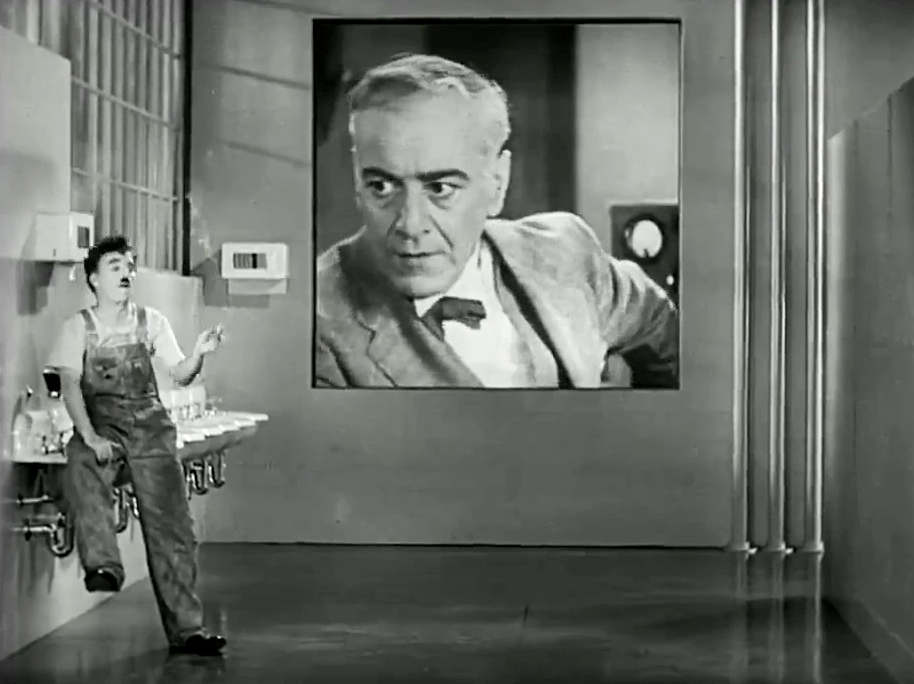First up today, [in]Transition has just published its first issue “devoted exclusively to peer-reviewed videographic work! Each video is accompanied by a curatorial statement from the maker, as well as the peer reviewer evaluations.” Issue 2.1:
- Adrian Martin on Jordan Tynes and Maurizio Viano’s Frames of Mind, “arguing both a specific analytical case in relation to Rossellini’s Rome Open City, and a general championing of ‘videography’ as a vibrant form of ‘liquid theorizing.’”
- Catherine Fowler on Patricia Pisters’s Emoticons, “a provocative and compelling audio-visual aperitif to her written work on neuro-images.”
- Steve Anderson on Kevin L. Ferguson’s Volumetric Cinema, “rigorously structured in six movements, each building upon Ferguson’s opening declaration that, conventional wisdom to the contrary, ‘cinema is neither a window nor a frame but a volume.’”
- And our own Kevin B. Lee on Steve Anderson’s Screening Surveillance: “Its overall flow, tone and movement through clips reminds me of Thom Andersen’s Los Angeles Plays Itself, which is a great compliment.”
“By any measure that counts, The Act of Killing is a deeply reactionary film,” argues Colin Beckett in Incite. “Under the guise of a trailblazing style, it smuggles in a deeply conservative philosophy, and enshrines a vision of documentary utterly contrary to an effective aesthetic of the left.” Elaborating, he tears into Errol Morris and Jill Godmilow as well.
From Jonathan Rosenbaum: “If Fritz Lang’s Die Nibelungen (1924) anticipates the pop mythologies of everything from Fantasia to Batman to Star Wars, his master spy thriller of four years later seems to usher in some of the romantic intrigues of Graham Greene, not to mention much of the paraphernalia of Ian Fleming, especially in their movie versions. No less suggestively, the employments of paranoia and conspiracy by less mainstream artists such as Jacques Rivette (Out 1) and Thomas Pynchon (Gravity’s Rainbow) seem rooted in the seductively coded messages, erotic intrigues, and multiple counter-plots of Spione.”
For Vulture, John Horn talks with Alex Gibney about Going Clear, Scientology—and the increasing use of drones in documentary filmmaking.
In a brief profile for the New Yorker, Ian Parker gets Charles Grodin to tell him about his “collection of life-size fibreglass animals—including a buffalo—that he installed in his back yard.”
BOOKS
Let’s welcome a new imprint, REFRAME Books, launching “with the publication of The Tablet Book, edited by Caroline Bassett, Ryan Burns, Russell Glasson and Kate O’Riordan, a collection of original research essays which mobilize a range of perspectives and approaches in thinking about and understanding the tablet computer.”
Lorna Simpson’s Cloudscape (2004) featuring a performance by Terry Adkins; via Judith Abitbol
David Bordwell and Kristin Thompson are seeing a few recent entries tweaked and published in print—as liner notes in the Music Box Films release of Kiyoshi Kurosawa’s Penance; as part of Matt Zoller Seitz’s The Wes Anderson Collection: The Grand Budapest Hotel; and accompanying Kino Lorber’s release of Jean-Luc Godard’s Goodbye to Language on Blu-ray and DVD, out on April 14.
The Shining: Studies in the Horror Film, “a mammoth 752-page volume” edited by Danel Olson and with an introduction by Lee Unkrich, will be out in May.
IN OTHER NEWS
“In December, Trevor Noah, a 31-year-old comedian, made his debut as an on-air contributor on The Daily Show With Jon Stewart, offering his outsider’s perspective, as a biracial South African, on the United States,” writes Dave Itzkoff in the New York Times. Now “Mr. Noah has been chosen as the new host of The Daily Show, succeeding Mr. Stewart after he steps down later this year.”
“A new proposal by the European Commission to change European copyright law could—if its critics are to be believed—wreak havoc on the independent film business, both in Europe and Hollywood…. At issue are plans, proposed by European Commission president Jean-Claude Juncker, to break down what he calls the ‘national silos’ in copyright legislation by getting rid of territorial exclusivity.” Scott Roxborough explains in the Hollywood Reporter.
From the Guardian: “Cannes 2015: 30 films we’d like to see.”
And it’s Mad Men Week at the AV Club.
OBITS
“Gene Saks, an actor who switched to stage and film directing in midcareer, winning three Tony Awards and becoming the leading interpreter of the plays of Neil Simon, died on Saturday,” reports Bruce Weber for the New York Times, noting that “in the 1990s he revived his acting career somewhat, playing a handful of character roles in films including Nobody’s Fool, Robert Benton’s adaptation of the Richard Russo novel, starring Paul Newman, and Woody Allen’s dyspeptic comedy about a blocked writer, Deconstructing Harry.” Saks was 93.
Joe Dunton on Kubrick’s lenses
“Miroslav Ondrícek, a Czech cinematographer who worked frequently with director Milos Forman and was nominated twice for Academy Awards, has died,” reports Alex Stedman for Variety. Ondrícek worked on more than 40 films in his career, about a dozen of which were shot in the U.S.” He worked with Forman on Fireman’s Ball (1967), Hair (1979), Ragtime (1981), Amadeus (1984) and Valmont (1989), with Lindsay Anderson on If…. (1968) and O Lucky Man! (1973), with Mike Nichols on Silkwood (1983) and with Penny Marshall on Awakenings (1990) and A League of Their Own (1992). Ondrícek was 80.
Italian actor Rik Battaglia has passed away at the age of 88. Paul van Yperen: “He made nearly 100 film appearances between 1954 and 1999. Battaglia played the bad guy in dozens of Peplums, Euro-Westerns and war films. In Germany he became notorious as ‘The Man Who Shot Winnetou.‘“
For news and tips throughout the day every day, follow @KeyframeDaily. Get Keyframe Daily in your inbox by signing in at fandor.com/daily.




